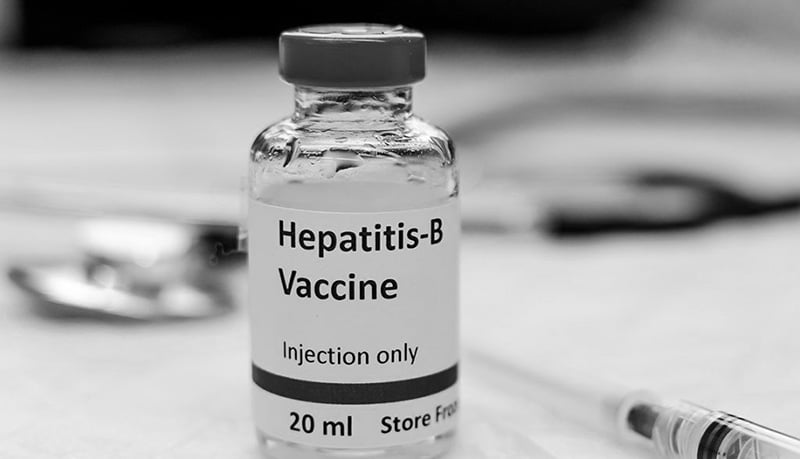A Comprehensive Guide to Vaccines Required for Kenya and Tanzania: Protecting Your Health Abroad
Planning a trip to Kenya or Tanzania? Ensuring your health and safety should be a top priority. One important aspect of this is understanding the vaccines required for these destinations. In this comprehensive guide, we will provide you with essential information on the vaccines required for Kenya and Tanzania.
Immunizations are crucial to safeguarding your health abroad. Both Kenya and Tanzania have specific vaccine recommendations to prevent the spread of diseases that may be prevalent in these regions. By understanding and adhering to these requirements, you can reduce the risk of falling ill and have peace of mind during your trip.
Importance of vaccines for travel
Traveling to new and exotic destinations is an exciting adventure, but it also exposes you to a variety of potential health risks. Vaccines are a critical tool in protecting yourself from these risks. They work by stimulating your immune system to produce antibodies that fight off specific diseases. By getting vaccinated before your trip, you can significantly reduce your chances of contracting and spreading diseases.
When it comes to travel vaccines, it’s essential to consult with a healthcare professional or travel clinic specializing in travel medicine. They will have the most up-to-date information on the specific vaccines required for your destination. Vaccines not only protect you but also contribute to the overall health and safety of the community you are visiting.
It’s important to note that vaccines take time to provide full protection. Some vaccinations required for Kenya and Tanzania need to be taken once to be effective, while others may take a few weeks to become effective. It’s crucial to plan your vaccinations well in advance of your trip to ensure you have adequate protection.
Understanding the required vaccines for Kenya and Tanzania

Kenya and Tanzania, like many other countries in Africa, have specific vaccine requirements for travelers. It’s crucial to understand these requirements and ensure you are up to date with the necessary vaccines before your departure.
Yellow fever vaccine
Yellow fever is a viral disease transmitted through the bite of infected mosquitoes. It can cause severe symptoms, including fever, headache, muscle pain, and in severe cases, liver damage and death. This is why Yellow fever is among the vaccines required for Kenya and Tanzania. Both Kenya and Tanzania require proof of yellow fever vaccination for travelers arriving from countries where yellow fever is endemic.
The yellow fever vaccine is a single dose that provides long-lasting protection. It is recommended to get vaccinated at least 10 days before your trip to allow your body to develop immunity. Remember to carry your International Certificate of Vaccination or Prophylaxis (ICVP) as proof of vaccination, as you may be asked to present it upon entry into Kenya or Tanzania.
Typhoid fever vaccine
Typhoid fever is a bacterial infection caused by Salmonella Typhi. It is spread through contaminated food and water. The risk of typhoid is higher in areas with poor sanitation and hygiene practices. Both Kenya and Tanzania recommend the typhoid fever vaccine for travelers, especially those visiting rural areas or staying for an extended period.
The typhoid fever vaccine is available as an injection or oral capsules. The injection provides protection for up to 2 years, while the oral capsules offer protection for approximately 5 years. It’s important to note that the vaccine does not provide 100% protection, so it’s essential to follow food and water hygiene practices during your trip.
Hepatitis A vaccine
One of the vaccinations required for Kenya and Tanzania is the Hepatitis A. This is a viral infection that affects the liver. It is primarily spread through contaminated food and water. Kenya and Tanzania recommend the hepatitis A vaccine for all travelers, as the risk of exposure is high in these regions.
The hepatitis A vaccine is given as a two-dose series, with the second dose administered 6 to 12 months after the first. However, even a single dose provides some protection, so it’s recommended to get vaccinated before your trip. As with other vaccines, it’s important to practice good hygiene and safe food and water practices during your travels.
Malaria prevention and treatment

Malaria is a life-threatening disease transmitted through the bite of infected mosquitoes. Both Kenya and Tanzania are considered malaria-endemic countries, and the risk of contracting malaria is high, especially in certain regions and during certain seasons.
Preventing malaria involves a combination of mosquito bite prevention and taking antimalarial medication. It’s important to use insect repellents, sleep under mosquito nets, and wear protective clothing to reduce your risk of mosquito bites. Additionally, consult with a healthcare professional or travel clinic to determine the appropriate antimalarial medication for your trip.
Remember, no antimalarial medication provides 100% protection, so it’s important to continue taking precautions even if you are taking medication. If you experience flu-like symptoms such as fever, chills, headache, and muscle aches during or after your trip, seek medical attention immediately, as these could be signs of malaria.
Other recommended vaccines for Kenya and Tanzania

Other recommended vaccines required for Kenya and Tanzania travelers include:
- Hepatitis B vaccine: Hepatitis B is a viral infection that affects the liver. It is primarily spread through contact with infected blood or body fluids. The vaccine is recommended for travelers who may have intimate contact with locals, require medical treatment, or engage in activities that may put them at risk of exposure.
- Meningococcal vaccine: Meningococcal meningitis is a bacterial infection that can cause severe illness and even death. The vaccine is recommended for travelers visiting areas with high rates of meningococcal disease, such as the “meningitis belt” in Africa.
- Rabies vaccine: Rabies is a viral infection that affects the nervous system and is transmitted through the bite or scratch of an infected animal. The vaccine is recommended for travelers who may have significant exposure to animals, such as wildlife workers or those participating in outdoor activities.
- Influenza vaccine: Influenza is a viral respiratory illness that can cause severe illness, especially in individuals with weakened immune systems. The vaccine is recommended for all travelers, as the flu can be easily transmitted in crowded places.
It’s important to consult with a healthcare professional or travel clinic to assess your specific vaccination needs based on your travel itinerary, duration of stay, and individual health factors.
Where to get vaccinated and travel clinics

Getting vaccinated before your trip is essential, but where can you get vaccinated? There are several options available to ensure you receive the necessary vaccines and travel health advice.
- Local healthcare providers: Visit your regular healthcare provider to discuss your travel plans and vaccination needs. They may administer the required vaccines or refer you to a specialized travel clinic.
- Travel clinics: Travel clinics specialize in providing travel health advice and administering vaccines. They have up-to-date information on the specific vaccine requirements for each destination and can provide personalized recommendations based on your itinerary.
- Public health departments: Contact your local public health department for information on vaccine availability and recommended travel clinics in your area.
- Pharmacies: Some pharmacies offer travel health services, including vaccinations. Check with your local pharmacy to see if they provide these services.
When visiting a healthcare provider or travel clinic, be sure to bring your travel itinerary, vaccination records, and any relevant medical information. This will help the healthcare professional assess your specific needs and provide appropriate recommendations.
Final tips for a safe and healthy trip
In conclusion, protecting your health while traveling to Kenya and Tanzania is of utmost importance. By understanding the required vaccines and taking necessary precautions, you can minimize the risk of falling ill and ensure a safe and enjoyable trip.
Remember to consult with a healthcare professional or travel clinic well in advance of your trip to determine the specific vaccines you need. Make sure to get vaccinated at least a few weeks before your departure, as some vaccines require time to become fully effective.
In addition to the vaccines required for Kenya and Tanzania, don’t forget to practice good hygiene, safe food and water practices, and mosquito bite prevention measures to further reduce your risk of illness. Pack a comprehensive travel health kit with essentials such as insect repellent, sunscreen, and any necessary medications.
Lastly, don’t let the fear of diseases prevent you from exploring the beauty of Kenya and Tanzania. By taking the necessary precautions and staying informed, you can have a safe and memorable trip. Bon voyage!
To summarize:
- Vaccines are crucial for protecting your health while traveling to Kenya and Tanzania.
- Understanding the required vaccines, such as yellow fever, typhoid fever, and hepatitis A, is essential.
- Malaria prevention and treatment should also be considered.
- Other recommended vaccines include hepatitis B, meningococcal, rabies, and influenza vaccines.
- Consult healthcare professionals or travel clinics for vaccinations and personalized recommendations.
- Follow good hygiene, food and water safety practices, and mosquito bite prevention measures.
- Pack a comprehensive travel health kit.
- Don’t let the fear of diseases hinder your travel plans. Stay informed and enjoy your trip to Kenya and Tanzania!
For more articles related to Tanzania Immigration, click here!


































